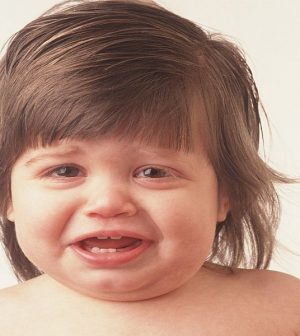- Could Your Grocery Store Meat Be Causing Recurring UTIs?
- Are You Making This Expensive Thermostat Error This Winter?
- Recognizing the Signs of Hypothyroidism
- 10 Strategies to Overcome Insomnia
- Could Artificial Sweeteners Be Aging the Brain Faster?
- Techniques for Soothing Your Nervous System
- Does the Water in Your House Smell Funny? Here’s Why
- Can a Daily Dose of Apple Cider Vinegar Actually Aid Weight Loss?
- 6 Health Beverages That Can Actually Spike Your Blood Sugar
- Treatment Options for Social Anxiety Disorder
How to Protect Your Baby Against Eczema

Using a rich moisturizer, even an inexpensive one like petroleum jelly, is one part of keeping eczema under control. Now researchers have found that this skin care step can keep many newborns at risk for the condition from developing it.
Eczema, or atopic dermatitis, is the most common inflammatory skin condition among children. With eczema, the skin’s natural barrier isn’t working correctly, leaving skin red, dry and itchy. It typically runs in families with a history of asthma and allergies, and affects up to one in five infants. The most common areas of the body affected are the face, neck and head. Note that eczema in children is more likely to appear in the bends of elbows and knees.
Eczema Symptoms
- Itchy skin
- Redness
- Dry, scaly skin
- Skin that has become leathery
- Tiny blisters that may ooze
Studies have found that moisturizing for six to eight months, starting within baby’s first few weeks, can reduce their eczema risk. What moisturizer should you use? Researchers from Northwestern Health recently looked at seven over-the-counter moisturizers, including several popular drugstore brands, as well as plain petroleum jelly.
The investigators found that petroleum jelly was the most cost-effective, but that even the most expensive product was a fraction of what the cost of eczema care would be. What’s more, this has the potential to save baby from great discomfort and quality-of-life consequences. These include a higher risk of infection, sleep problems and, when eczema follows baby into childhood, even missed time from school.
More research is underway to see if moisturizing for 12 months is even more effective.
More information
The American Academy of Pediatrics has more on eczema in children.
Source: HealthDay
Copyright © 2026 HealthDay. All rights reserved.










